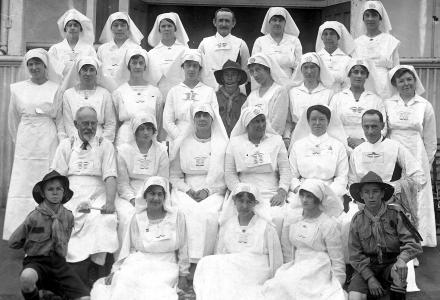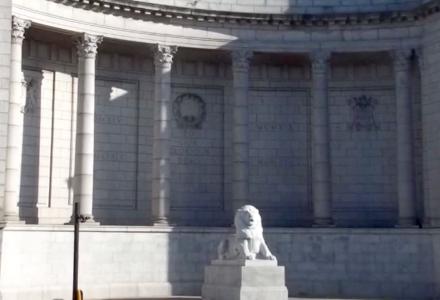Daisy Pearse was a fourth generation Australian. She belonged to one of the oldest (white) families in Fremantle and achieved some acclaim as an Australian author. But Daisy married Alfred Schoeffel—a German. As such, Daisy came to be considered German herself. Well into the twentieth century, a woman took on her husband’s nationality the moment they married. At the outbreak of war, some 35,000 Australian residents had been born in Germany, Austria, and Hungary and in the eyes of the authorities their dependents were equally suspect. Daisy and her children were sent to an internment camp in Bourke, New South Wales. It was called a ‘family camp’ but conditions there were appalling.
In the hysteria of wartime, some six thousand suspected ‘enemy sympathisers’ were interned, several had sons serving in the First AIF. Very few of these ‘enemy aliens’ presented any threat to the nation they had adopted as their home. To speak German, to have a German name or, absurd as it may seem, to have a German ‘appearance’ was enough to warrant suspicion, investigation, and sometimes imprisonment. In short, these individuals were different, not dangerous.
At the end of the war, Daisy Schoeffel received no redress, no apology, and certainly no compensation. But at least she survived the experience. After enduring 40 degree heat in the tin huts at Bourke, Daisy (and many fellow internees) were transferred to Molonglo Internment Camp near Canberra. It was all too much for Mrs Emma Rohrmann, who contracted pneumonia and died of heart failure the same month the war ended.
In 1919, all the internees of the camp were deported, including some seventy-seven children. Australia was intent on purging any German presence. But Daisy Shoeffel insisted on her right to return to her family in Fremantle. ‘What hurt us more than all the insults and hardships,’ she wrote to her Member of Parliament in Western Australia, ‘was the fact we should have to suffer all this at the hands of our men and in our own country!’
The harassment of ‘German’ families was yet another gauge of how the Great War divided Australian society. Daisy Schoeffel’s story shows how war bred fear, suspicion, and narrowed the definition of what it meant to be Australian. It also highlights a (sadly) perennial theme in Australian history. From the foundation of British colonialism, to the making of a white Australia, and the recent forced deportation of refugees from our shores, many have rejected multiculturalism in favour of a less diverse, less inclusive, and less compassionate society.



